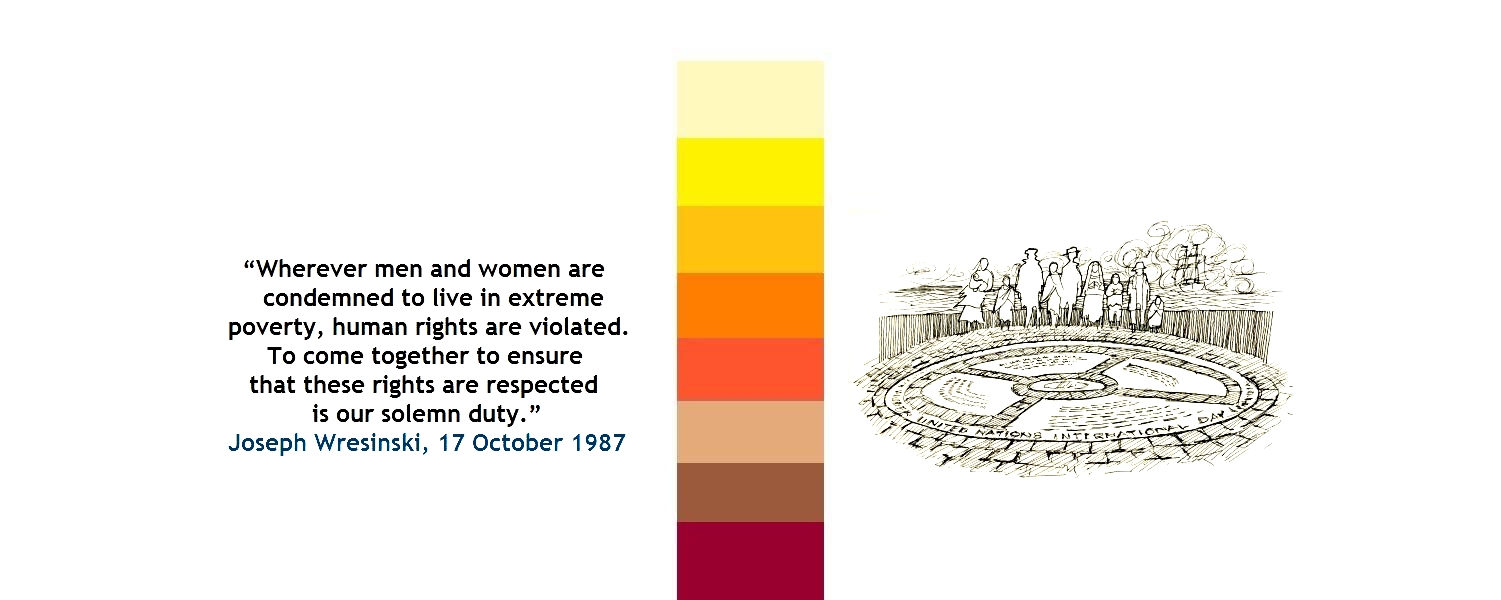17 October 2020 End Poverty Day Theme: Achieving Social and Environmental Justice for All – through the Lens of the Covid-19 Pandemic
The Covid-19 pandemic, which has had such devastating impacts on communities in Ireland and around the world, has heightened people’s awareness of social and environmental justice which are both very interconnected and reflect many of the same values and issues. This theme of the United Nations International Day for the Eradication of Poverty on 17th October 2020 is, therefore, a very appropriate one for the global commemoration.
It has been tempting for some commentators to view the coronavirus as a kind of equalizer which does not discriminate, a form of acknowledgement of our common humanity, and a call to support one another. But, as COVID-19 first emerged from the encroachment of human activity into the natural habitats of other species, it began to raise critical questions of prevailing social and health inequalities based on class, race and gender, of climate change and of ecosystem disruption.
The virus has cast a very clear spotlight on largely unnoticed groups in society, from low-income people in polluted neighbourhoods, to residents of nursing homes and prisons, to people in over-crowded living conditions, and to workers in under-funded front line services. It has made marginalised populations and threatened ecosystems that society had previously made invisible, now more visible to us.
For example, we have witnessed:
- Individuals and families incurring additional Covid-related costs, such as food and utilities, while receiving no increase in their basic social welfare payment.
- Individuals and families in poverty stranded by digital exclusion without access to online information about public health, food banks, and mutual aid groups. With rapidly changing information, many people struggle to understand what is meant by self-isolation and what safe practices are currently recommended.
- Children cut off for long periods from their circle of friends and their school environments, and the consequent care pressures and additional costs placed on parents.
- Migrant people living in direct provision accommodation where it is difficult for them to socially isolate and to stay safe.
- Many contact visits between children in long-term foster care and their birth families being negatively impacted on.
- Mental health issues caused by the pandemic have affected people in all walks of life, but people in poverty are particularly hard-pressed due to their cramped and precarious living accommodation. They have less money to cope with shortages and price gouging. They lack access to nature, closed public amenities, and other forms of relaxation and entertainment. These conditions trigger anger, tension and conflict.
Most importantly, the pandemic has revealed in a clear light the structural inequalities that are the driver of social injustice and the lack of environmental protections which countless thousands of people have been forced to experience on a daily basis, both before and throughout the pandemic. Indeed, the pandemic itself, through its harmful social, health and economic consequences, has increased these long-standing structural inequalities.
These past long months of isolation, illness and death have cast a very dark cloud over our communities. And yet, we have seen first-hand how the pandemic has resulted in enormous levels of empathy, generosity and support by communities to the most vulnerable members in their midst. But as we gradually return to a new ‘normal’, we remain grappling with feelings of uncertainty, anxiety and fear about the future. How can we forge a safer, healthier, inclusive and equal society based on the principles of social and environmental justice? How can such a vision take into account the voice, knowledge and experience of those most isolated, not just by the pandemic, but by consistent poverty and harmful environments?
Today, we are all challenged through the lens of our collective COVID-19 experience to examine issues such as inequality in access to jobs, food, housing, and healthcare, and equity implications in the context of climate change. As many Governments chose to provide generous subsidies to people made unemployed by the pandemic, we are also called on to recognise the critical importance of developing adequate social protection systems for all which ensure that vulnerable populations living in precarious environments can survive the worst effects of other public health crises in the future.
Covid-19 has proved to be both a global human rights issue and a civil rights issue. There is now an urgent need to tie together social equality, poverty eradication, community empowerment, universal health care, and environmental sustainability if we truly want to create a world that leaves no one behind.
